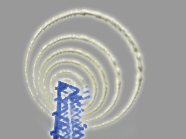
| |
|
|
|
|
||||||
| |
|
|
|
|
|
|
|
|||
 |
|||||||||||||||||||
|
|||||||||||||||||||
Statement of Teaching PhilosophyIn his most recent book Othermindedness. The Emergence of Network Culture (2000), Michael Joyce delineates the finely-linked relationship between virtual space and real place, stating that "The mind of the electronic age must move out into the world" (78). His statement is a cautionary one, warning that our fascination with the intricacies and speed of the new electronic culture should not eclipse the importance of the world as an anchor. Joyce rightly locates the nexus between the electronic age and the world in the intellect, the mind that can think critically and clearly about the world in all its associations. The reflective nature of writing permits an unraveling of the complex interarticulations between virtual space and real place, between disembodied, sublime thought and the physical realness that triggers such reflection. College students of today seem to view the world from a new and different perspective than did previous generations, and given the plethora of electronic gadgets, and time-saving (leisure-producing?) devices that inundate us as consumers, they are perhaps destined to do so. Yet the members of "Generation D," as the new advertising lingo has packaged traditionally-aged college students, are situated in a unique position–one in which they can apply the skills and techniques of this "new" digital culture while, at the same time, critically engaging the precepts behind the digital revolution. Striking a balance between the two requires teachers who can challenge their students to delve behind the advertising and business world hype of the new information economy, in order to attend to broader issues centered on subjectivity, physicality, community-building, workplace transformation and identity. Weaving these issues together in the university curriculum allows for classroom experiences which are engaging and topical, and which draw together a collection of input (critical essay, fiction, video, website, and student/teacher opinion). This "inter-medial" or montage approach reflects the ever-changing diversity of opinion in the communities in which we live, and it is through an exploration of a plurality of thought that we can achieve moments of collaboration and consensus. In this sense, an effective university teacher needs to act as guide, translator, nemesis and mediator, not only for the source material in the course, but also for the community of learners constructed by the classroom. One of the important facets of electronic/digital/virtual/multimedia environments is the ability to participate in a collaborative arrangement that draws on the experience and expertise of all those involved. I feel this type of collaboration needs to be extended to the classroom as well. In searching for the best possible reasons to support their own ideas, students are also learning that their conclusions are only as good as the reasons that support them. Learning to read and think critically about the entire range of source material for any given course assists students in the writing of thoughtful and engaging essays. Both a peer review of written assignments, and a midterm review of each student’s essay portfolio, including first and revised drafts, provide opportunities for constructive debate and criticism. In this fashion, the writing component in any college classroom resonates all that distributed cognition in the electronic realm promises to achieve: equity in matters of racial, economic and gender diversity. As defined by Cynthia Caywood and Gillian Overing in their 1987 volume Teaching Writing: Pedagogy, Gender, and Equity: "Equity as we understand it, creates new standards which accommodate and nurture differences. Equity fosters the individual voice in the classroom, investing students with confidence in their own authority. Equity unleashes the creative potential of heterogeneity" (xi). Equity and heterogeneity allow us to take a new spin on Joyce’s statement above: just as the mind of the electronic age should not dismiss or forget the real-life problems of the world, so too should the world not resist moving in and through the electronic age, in order to illumine and critically engage the often invisible and inaudible legislative systems governing its use. |
News | Research | Teaching | Digital Development | Links of Interest | Materials | Home
Daniel Gilfillan
School of International Letters & Cultures
Arizona State University
PO Box 870202
Tempe, AZ 85287-0202dgilfil (at) asu (dot) edu
T: (480) 965-8245
F: (480) 965-0135School of International Letters & Cultures
Arizona State University
PO Box 870202
Tempe, AZ 85287-0202
silc@asu.edu
T: (480) 965-6281
F: (480) 965-0135
http://silc.asu.edu